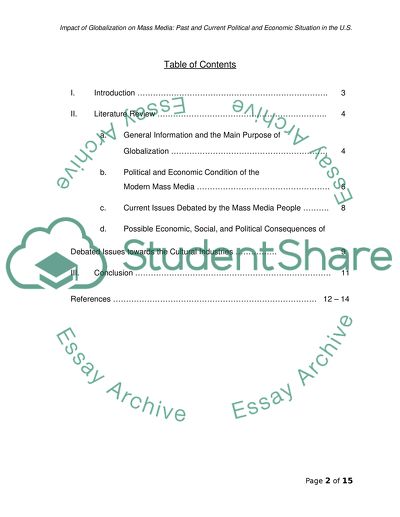Cite this document
(“Globalisation and mass media Essay Example | Topics and Well Written Essays - 2250 words”, n.d.)
Globalisation and mass media Essay Example | Topics and Well Written Essays - 2250 words. Retrieved from https://studentshare.org/miscellaneous/1550915-globalisation-and-mass-media
Globalisation and mass media Essay Example | Topics and Well Written Essays - 2250 words. Retrieved from https://studentshare.org/miscellaneous/1550915-globalisation-and-mass-media
(Globalisation and Mass Media Essay Example | Topics and Well Written Essays - 2250 Words)
Globalisation and Mass Media Essay Example | Topics and Well Written Essays - 2250 Words. https://studentshare.org/miscellaneous/1550915-globalisation-and-mass-media.
Globalisation and Mass Media Essay Example | Topics and Well Written Essays - 2250 Words. https://studentshare.org/miscellaneous/1550915-globalisation-and-mass-media.
“Globalisation and Mass Media Essay Example | Topics and Well Written Essays - 2250 Words”, n.d. https://studentshare.org/miscellaneous/1550915-globalisation-and-mass-media.


